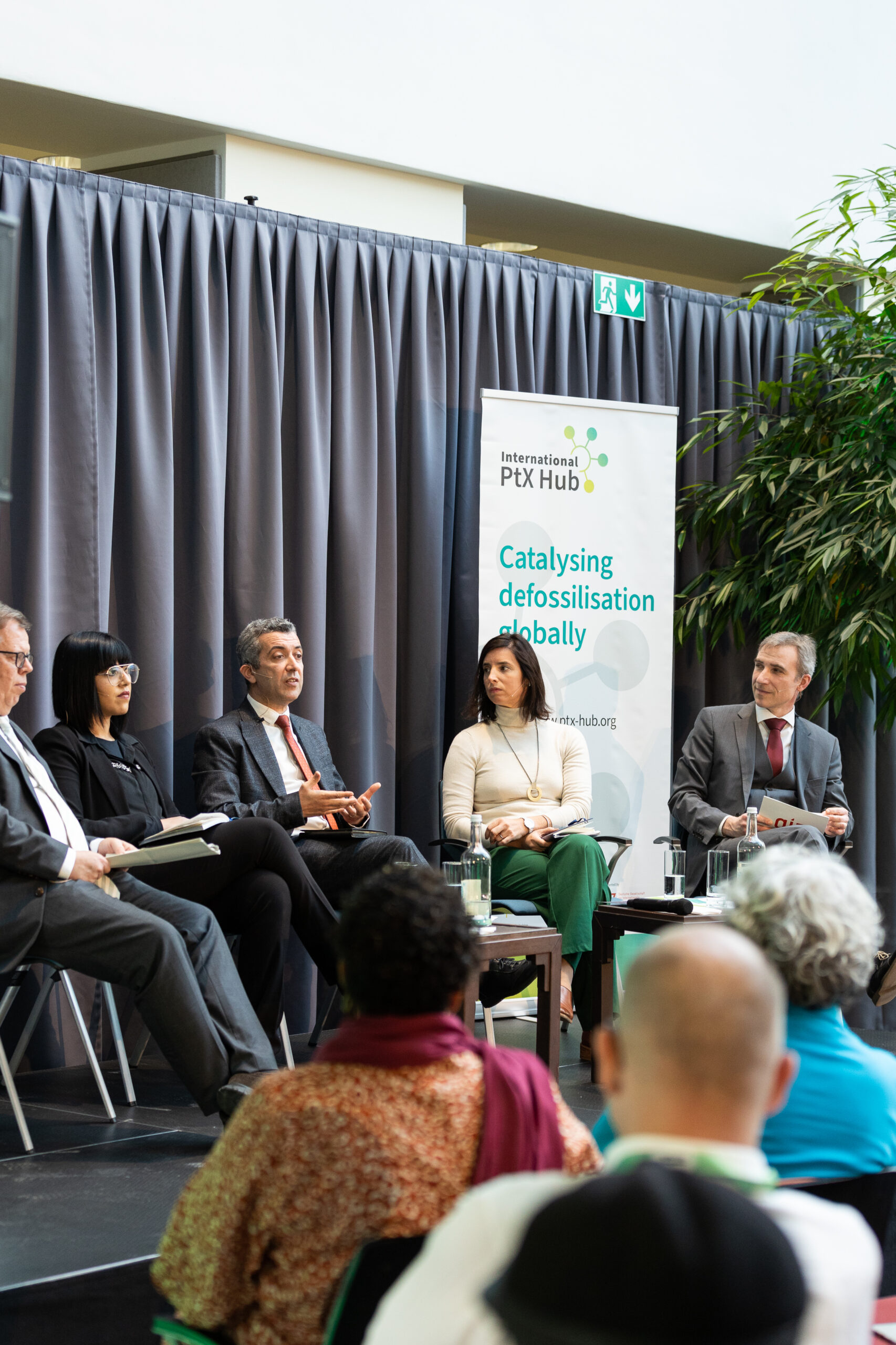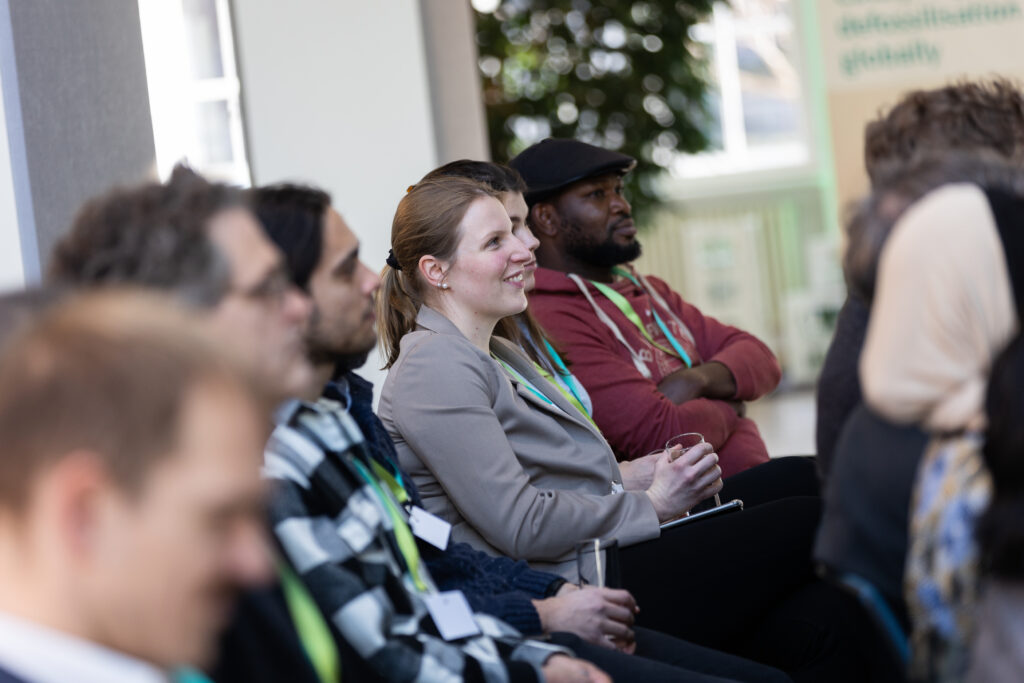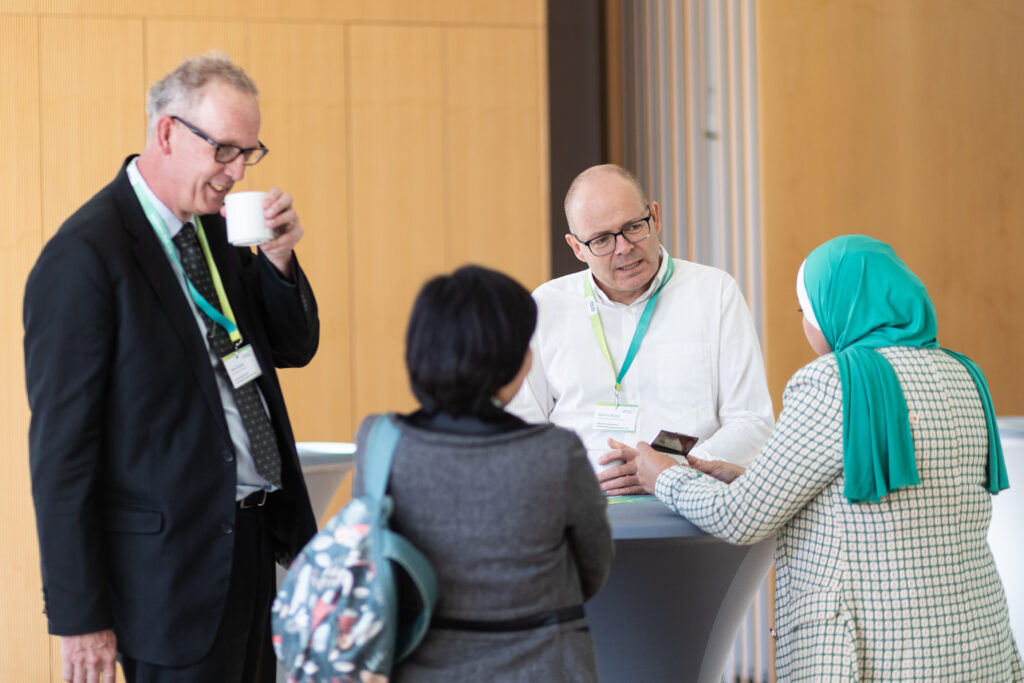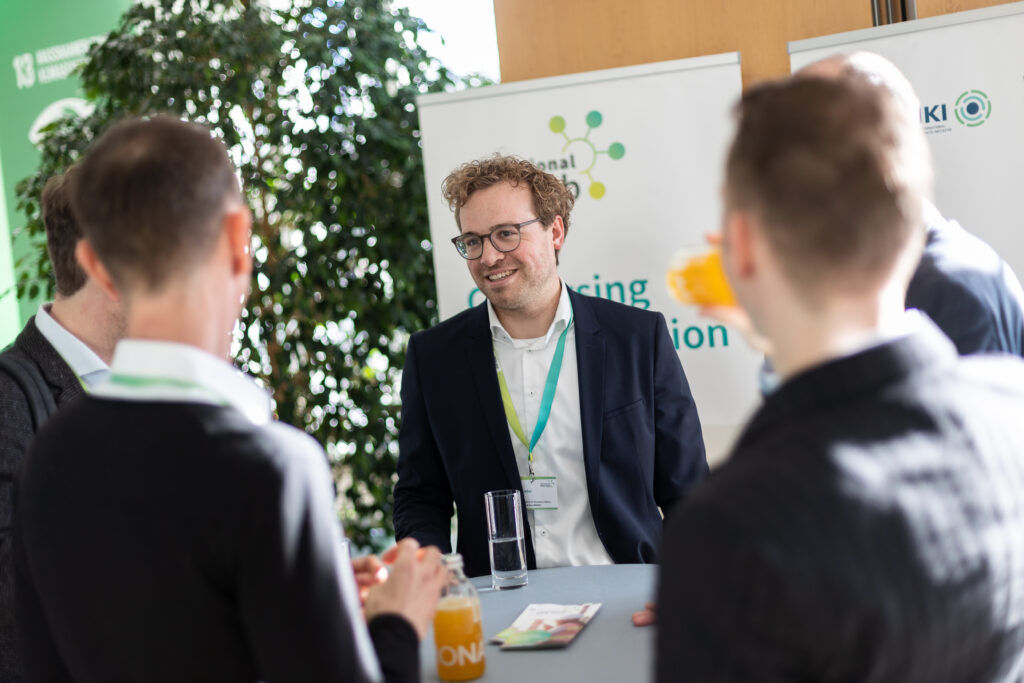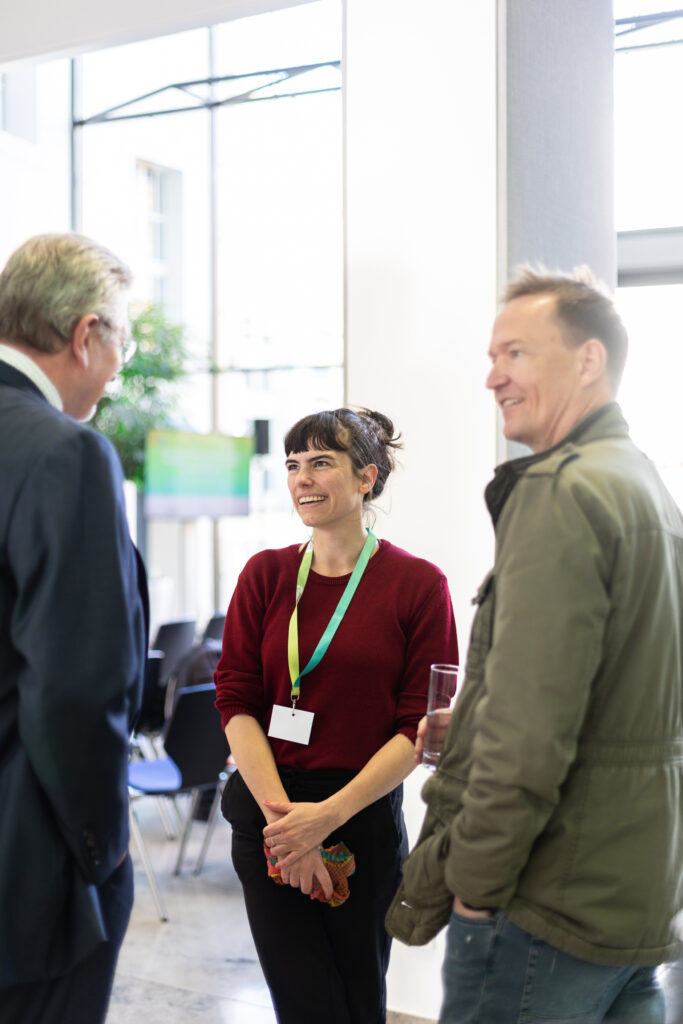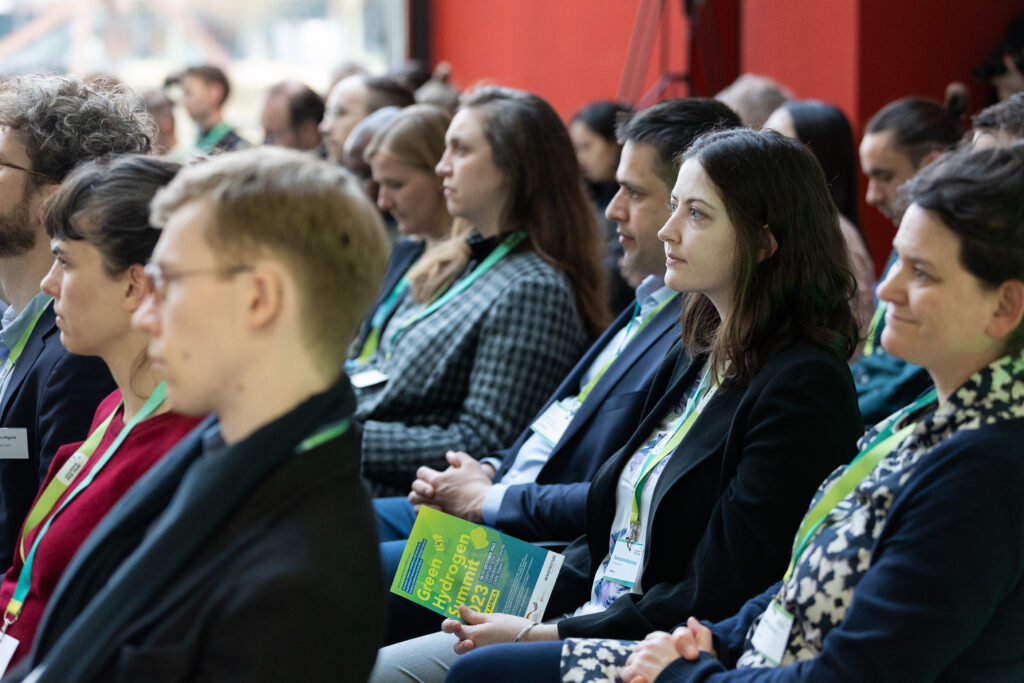Power-to-X (PtX) projects have to deliver on multiple promises: They need to benefit the local population, adhere to sustainability criteria, ensure viable business cases, and support the energy security of local and off-take markets. During our partner event “Empowering Partner Countries through Power-to-X – Joint Pathways towards a Sustainable Future” at the Berlin Energy Transition Dialogue 2023, high-level representatives from South Africa, Uruguay, the MENA region, Germany, civil society and the private sector discussed which of these goals are feasible and how they can be achieved.
After setting the scene with the video “The Path to 2050 with PtX”, Dr Dominik Schnichels, Director General for External Economic Policy at the German Federal Ministry for Economic Affairs and Climate Action, underlined the importance of bilateral energy partnerships to ramp-up global hydrogen markets in his welcome address: “We believe that green hydrogen can deliver on a double promise – as a crucial part of climate action and […] in terms of economic development and prosperity in the partner countries.”
To kick-off the panel discussion Kaashifah Beukes, Chief Executive Officer at Freeport Saldanha South Africa, illustrated the potential of PtX from a business perspective using Saldanha Bay. The region is troubled with high rates of poverty and economic deprivation but also with high potential for renewable energy and green hydrogen. She stated that the area needs multi-tiered interventions in investment facilitation, research and development/training and infrastructure to develop and benefit from local PtX value chains in the long-term: “We see the opportunity; we see the benefits of taking a bigger view of what is possible and what a green economy could do for South Africa’s development.”
Following, Dr Christiane Averbeck, Executive Director Climate Alliance Germany and Member of the German Hydrogen Council, delivered impulses from a civil society point of view. She highlighted that ambitious, binding sustainability criteria for the production and trade of green hydrogen are needed to ensure a green and fair hydrogen economy right from the beginning: “Export projects must not jeopardise local water supply and respect existing traditional land use and nature conservation. […] Projects have to be discussed according to human rights, environmental protection and democratic procedures.”
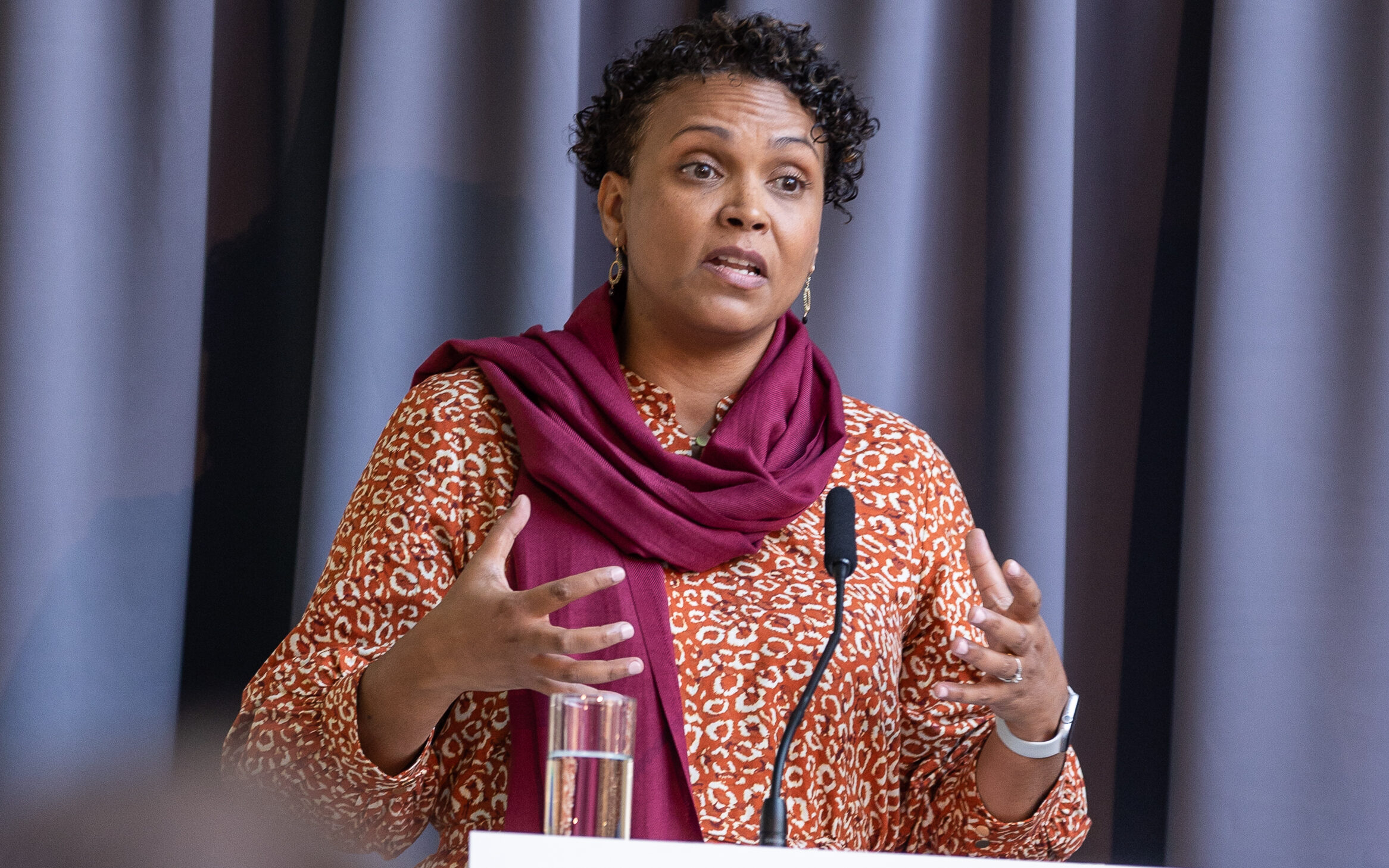
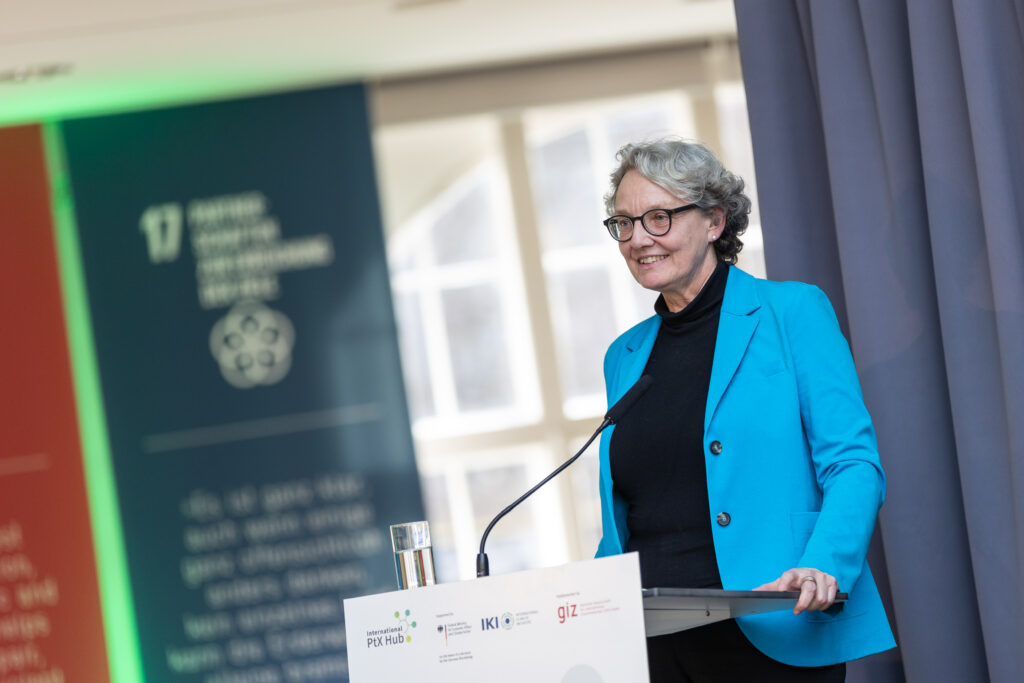
During the discussion, Frank Mischler, Project Manager at the International PtX Hub, adressed with panellists the country perspectives, the importance of partnerships and how to realise a win-win situation for all parties.
María José González, Head of the Green Hydrogen Program at the Uruguayan Ministry of Industry, Energy and Mining, explained that PtX is a natural step for the country’s economy given Uruguay’s clean electricity grid and high potential for renewable energy. However, the country needs to boost the domestic demand not only export. To achieve this, knowledge exchange is critical: “We need to train people. […] Not only the people in the education sector and the workers but also the local population.” María José González further argued that the dialogue around certification must be opened up to discuss realistic criteria and reduce barriers to commercial trade in the long term.
As the panellists reflected on partnerships, Dr Jauad El Kharraz, Executive Director of the Regional Center for Renewable Energy & Energy Efficiency (RCREEE), explained that countries in the MENA region are currently dependent on technology imports (e.g., for running desalination plants). According to him, international cooperation should also focus on technology exchange to build successful business models in the countries: “We need to localise the technology and be able to manufacture some components of electrolysers and other elements of PtX value chains.”
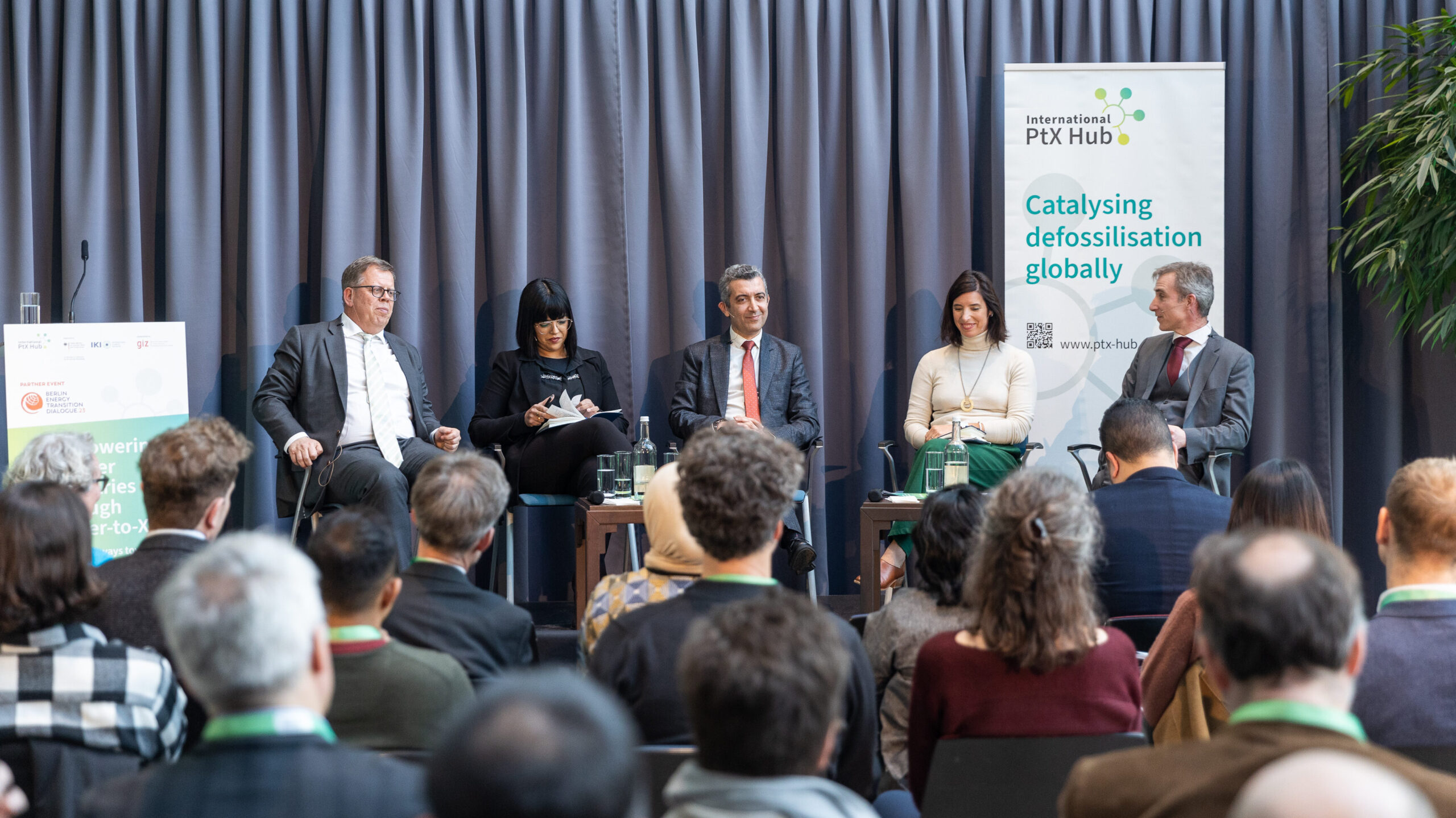
Shaakira Karolia, Programme Manager Infrastructure Finance at Infrastructure South Africa, emphasised that green hydrogen is part of the South Africa’s just energy transition: “The export is very important for us to achieve our economic transformation as a country. It gives us the revenues to invest in infrastructure and ensure sustainable development.” She stated that more concessional finance and public-private partnerships (PPPs) are needed to account for the exceptionally large amounts of money that are required.
During the panel Dr Tobias Bischof-Niemz, Head of New Energy Solutions at ENERTRAG, shared insights from a project developer perspective on the HYPHEN project in Namibia. He stressed the potential beyond the country context: “For Namibia it is an opportunity to get this right, to scale it up and make the industry globally competitive. It is also an opportunity to work with neighbouring countries and accelerate the development of green hydrogen in the region.”
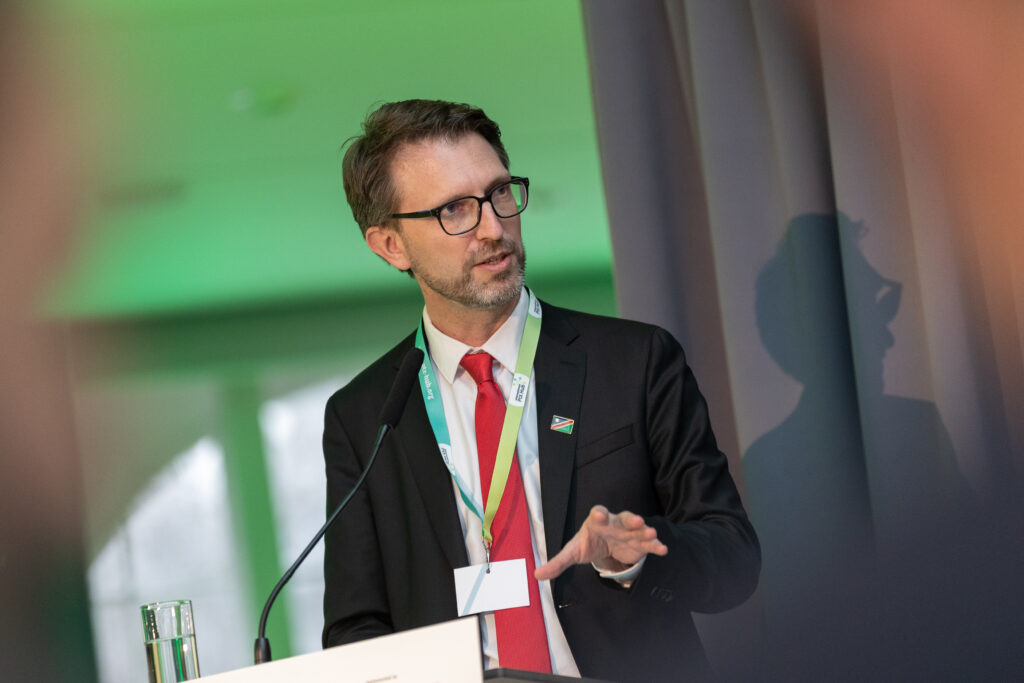
Concluding, Dr Dominik Schnichels, underlined that new strategies are needed to attract investments in green hydrogen: “We are in a market that is moving exponentially, and accurately predicting whether you are doing too much or too little is like looking into a crystal ball. […] We have to make decisions and take risks.”
South Africa, Uruguay, Namibia, the MENA region and many other countries are laying the groundwork now to operate PtX systems in the short to medium term. The International PtX Hub supports them in finding their own paths and thus taking steps towards a fossil-free and climate-neutral future.
View all pictures of the event here. When downloading and publishing pictures, please always indicate the copyright © GIZ/Anne Preussel.
Watch the recording below
The event was supported by the Energy Partnerships, H2Uppp and the Business Alliance on Green Hydrogen (all implemented by the Deutsche Gesellschaft für Internationale Zusammenarbeit (GIZ) GmbH).
About the Berlin Energy Transition Dialogue
As a leading international forum for key stakeholders of the energy sector, high-level policymakers, industry, science and civil society share their experiences and ideas on a safe, affordable and environmentally responsible global energy transition. Over 2,000 participants from more than 90 countries, 50 foreign and energy ministers and state secretaries, and over 100 high-level speakers gather in the German capital every spring to be part of the Berlin Energy Transition Dialogue.
